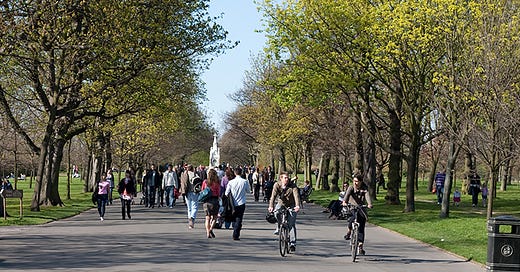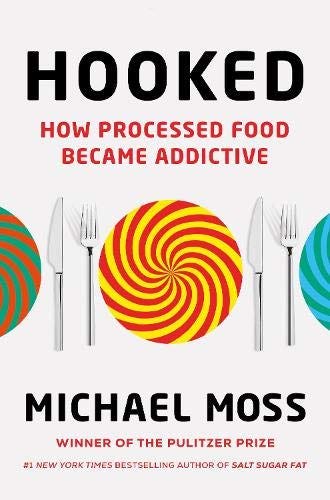Welcome to Just Two Things, which I try to publish daily, five days a week. Some links may also appear on my blog from time to time. Links to the main articles are in cross-heads as well as the story.
#1: Bikes against climate change
If we want to fix the climate change problems associated with transport we need to focus more on active travel, especially cycling, and less on the transition to electric vehicles.
That’s the conclusion of a two-year diary study involving several thousand participants across seven European cities. Christian Brand summarised the research in The Conversation.
In the UK, 28% of carbon emissions come from transport, and it is generally a carbon intensive sector, once the materials involved in producing vehicles, making and maintaining roads, and so on, are taken into account.
When we compared the life cycle of each travel mode, taking into account the carbon generated by making the vehicle, fuelling it and disposing of it, we found that emissions from cycling can be more than 30 times lower for each trip than driving a fossil fuel car, and about ten times lower than driving an electric one.
(Photo by Tom Page, CC BY-SA 2.0, via Ramblers.org.uk)
One of the findings was that you get gains from relatively modest changes in behaviour; even just cycling one day a week instead of using a car produces gains. Overall, the impact is striking:
We also estimatethat urban residents who switched from driving to cycling for just one trip per day reduced their carbon footprint by about half a tonne of CO₂ over the course of a year, and save the equivalent emissions of a one-way flight from London to New York.
The researchers also note that time matters when it comes to climate change: what we can do in the next five years has disproportionate effects compared to changes that take 15 years to implement.
Active travel uses known technologies and builds on existing behaviours. Although Christian Brand doesn’t mention it, it also comes with well-known public health and social benefits.
The blockage is decision-makers—such as Kensington and Chelsea councillors in London— who continue to privilege car use despite everything we know about its adverse environmental, social, and health effects.
(H/t Wendy Schultz)
Michael Moss is an American investigative reporter who has spent a decade on the case of the big American processed food companies. He was interviewed on the NPR podcast Fresh Air about his latest book, Hooked. The title tells you where he’s heading with this stuff.
One of the critical issues—if you’re going to assert that food companies encourage addictive behaviours—is how you define addiction.
Moss has a helpful piece of evidence here: the definition offered as testimony under oath by a CEO of the tobacco and food company Philip Morris:
A repetitive behaviour that some people find it difficult to quit.
It’s also the case that our understanding of addiction has changed over the years, and that food companies use language that might imply addiction, at least internally. They say they’re looking for ‘craveability’, ‘snackability’, even ‘moreability’.
The key to food addiction is a combination of the sugar and the smell. One of the critical physiological issues in addiction is how quickly the sensation moves from tongue to brain. Sugar, generally, takes less than a second; nicotine a whole ten seconds.
Smell also does a lot more of the work than taste does, and that’s one of the reasons that the fragrance business is such an important part of the foods business, and why food industry chemists spend so much time on improving the impact of smell in processed food products. Memory also matters, especially childhood memory. Moss talks about the lifetime impact of “getting a soda into the hands of a child at the ball game”—and the way in which our cupboards filled up with our childhood foods for reassurance during lockdown.
Moss suggests during the interview that it made sense for Philip Morris to diversify into foods—through acquiring Kraft Foods—as the tobacco sector shrank—increasingly the processed foods sector needs some of the same regulatory skills and litigation skills.
But it’s also clear from the discovery processes in several of the high profile lawsuits, that unlike tobacco, there’s no ‘smoking gun’ memo somewhere in the files that links ‘fast food’ to addictive behaviour. It’s more just in the business model:
Everything about the food processing industry is about speed.
(Lunchables photo by Mike Mozart, Flickr, CC BY 2.0)
But consumer tastes are changing towards healthier foods, and so are professional attitudes. For example, the inventor of the Lunchables, a widely sold American school lunch snack, had an epiphany when his daughter told him she wouldn’t let his grandchildren eat it. He’s now advising companies making more nutritious products how to navigate the route through the food distribution and groceries sectors.
While regulators are less likely to get involved in the US than in the UK, you can’t help but feel that sooner or later empty calories will turn into empty profits.
j2t#091
If you are enjoying Just Two Things, please do send it on to a friend or colleague.





